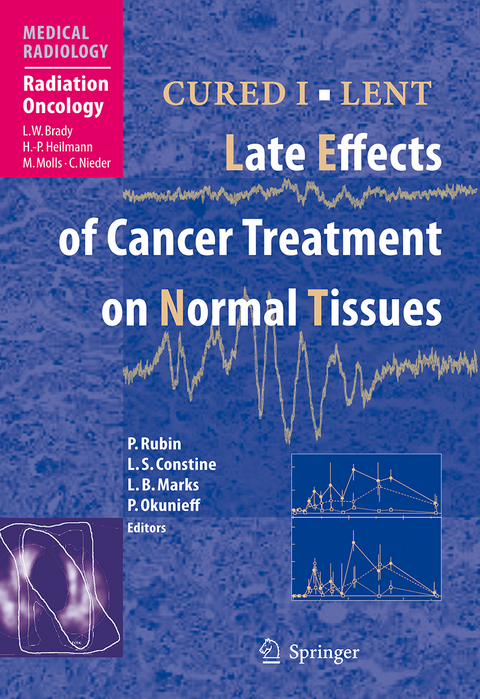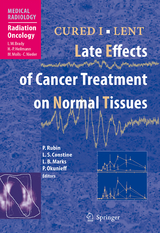CURED I - LENT Late Effects of Cancer Treatment on Normal Tissues
Springer Berlin (Verlag)
978-3-540-49069-2 (ISBN)
The rapid advances in radiation oncology, radiation biology, and radiation therapy physics have led to an accumulation of information on the interactions of radiation with other therapeutic modalities, such as the wide array of chemotherapeutic agents being employed in combination with radiation therapy, as well as the multiple biologic response modi? ers that are being used in combination with radiation therapy. It is now recognized that they have a signi? cant impact on normal tissue toxicities. The radiation doses customarily deemed safe on the basis of past experience have now, when combined with other modalities, led to severe late effects in different vital organs. The previously de? ned radiation tolerance dosages remain as valuable guides, but their applicability has changed signi? cantly. The emphasis is now placed on the volume of the organ irradiated, as well as the dose being used. New constructs rel- ing global (whole organ) and focal (partial volume) injury as a function of the dose volume histogram emerge as a signi? cant predictor of late effects on normal tissues. There are now mathematical models such as the model on standard dose, time-dose factors, and accumulated radiation effects that have been supplanted by linear-q- dratic equations using the alpha/beta ratio and its clinical applicability to normal tissue complications. This volume presents contemporary data relating to late effects on normal tissues.
Radiation (and Medical) Biosurveillance.- Medical Countermeasures to Radiation Injury.- Ionizing Radiation and the Endothelium.- Inflammation and Cell Adhesion Molecules are Involved in Radiation-Induced Lung Injury.- Volume Effects in Radiation Damage to Rat Lung.- The Role of Imaging in the Study of Radiation-Induced Normal Tissue Injury.- Screening for Cardiovascular Disease in Survivors of Thoracic Radiation.- Hypoxia-Mediated Chronic Normal Tissue Injury.- Prevention and Treatment of Radiation Injuries.- Second Malignancies as a Consequence of Radiation Therapy.- Using Quality of Life Information to Rationally.- Cancer-Related Fatigue as a Late Effect:.- Normal Tissue TNM Toxicity Taxonomy.- Cancer Survivorship Research:.
From the reviews:
"This book provides a basic science understanding of the processes behind the side effects of radiation. ... is appropriate for residents, clinicians, radiobiologists, and medical physicists as it addresses the fundamentals necessary for a firm understanding of radiation sequelae. ... The color pictures, graphs, diagrams, and tables beautifully illustrate the main concepts of each chapter. ... Chapters outline the guidelines and models for researchers and clinicians ... . should be in the library of every radiation oncology department." (Ann Pittier, Doody's Review Service, August, 2008)
| Erscheint lt. Verlag | 1.10.2007 |
|---|---|
| Reihe/Serie | Medical Radiology | Radiation Oncology |
| Zusatzinfo | XXII, 140 p. 68 illus., 30 illus. in color. |
| Verlagsort | Berlin |
| Sprache | englisch |
| Maße | 193 x 270 mm |
| Gewicht | 655 g |
| Themenwelt | Medizinische Fachgebiete ► Radiologie / Bildgebende Verfahren ► Radiologie |
| Schlagworte | Cancer • Cancer Treatment • Cell • fatigue • Imaging • inflammation • Krebs (Krankheit) • Krebs (Krankheit) / Karzinom • late effects of irradiation • Pathology • Physiology • prevention • Radiation • Radiation damage • radiation regimens • radiation therapy • Radiaton Oncology • radiotherapy • Screening • surgical oncology • TNM • TNM staging system |
| ISBN-10 | 3-540-49069-8 / 3540490698 |
| ISBN-13 | 978-3-540-49069-2 / 9783540490692 |
| Zustand | Neuware |
| Informationen gemäß Produktsicherheitsverordnung (GPSR) | |
| Haben Sie eine Frage zum Produkt? |
aus dem Bereich




